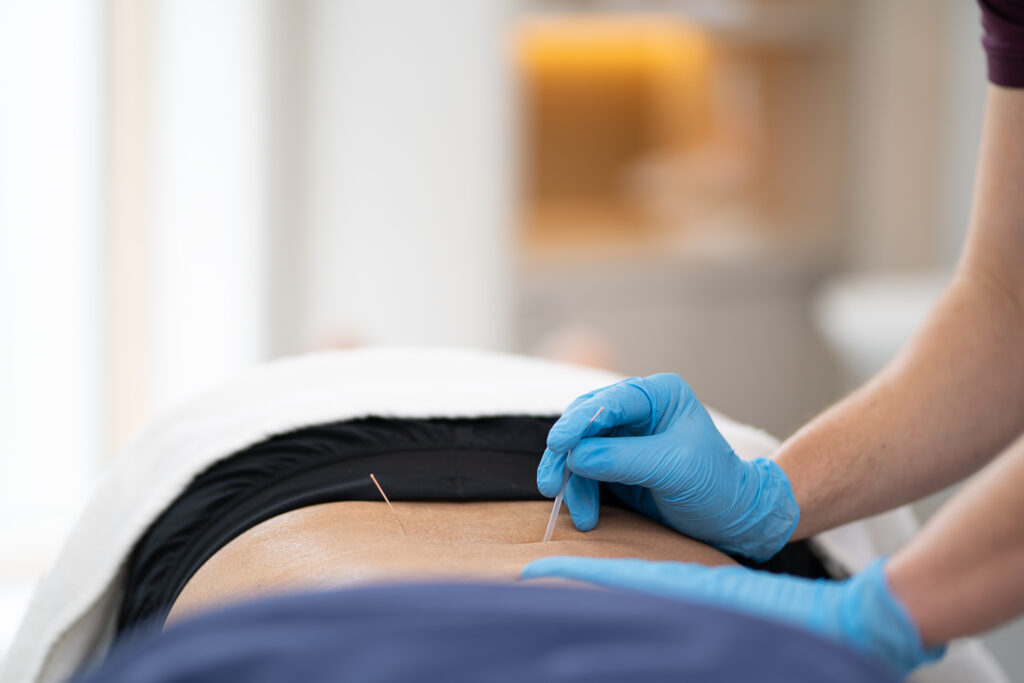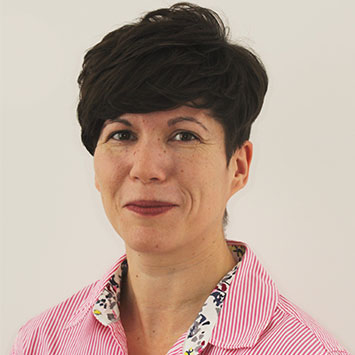What is acupuncture treatment?
Acupuncture is used to treat a wide variety of conditions, such as spinal pain (headaches, neck and back), upper limb disorders (frozen shoulder, rotator cuff pain, tendinosis – tennis and golfer elbow), lower limb knee, foot and ankle and chronic pain. Specific acupuncture points, also known as acupoints, are chosen based on the patient’s condition.
Acupuncture is used for its analgesic effects (i.e. its ability to reduce pain). Needles are inserted at these specific points by skilled practitioners to minimise discomfort and maximise therapeutic effects. It also actively improves healing and the rate of recovery.
There is evidence that confirms the positive effects of acupuncture. Research has shown that the acupuncture needles stimulate various physiological mechanisms in the central nervous system which causes our bodies to naturally release pain-relieving chemicals such as endorphins, melatonin and serotonin. Acupuncture has also been proven to speed up the initial inflammatory response which helps to promote the important secondary healing response.
Our physiotherapists are members of the Acupuncture Association of Chartered Physiotherapists (AACP). We use a combination of Western science and traditional Eastern approach to acupuncture to treat and relieve pain for a variety of MSK conditions.
Risks of acupuncture treatment
Acupuncture treatment is safe and the known side effects are rare. It is important to choose a qualified acupuncture practitioner to ensure safe and effective treatment. We use single-use needles and adhere to infection control policy and guidelines.
There are instances when acupuncture is contraindicated (not a suitable treatment option); however, we will confirm if this is the case in the first part of your initial appointment.
Please note that we do not use acupuncture:
- with people younger than 16 years of age
- with women in the first trimester of pregnancy
- with people who have epilepsy
- with people who are unable to give their consent and in certain other cases
Initial appointment: £90
More about pricingBefore treatment
You do not need a referral for an acupuncture appointment.
At your first appointment, acupuncture practitioners will take a detailed medical history and perform an assessment to better understand your condition. This will help us to eliminate any reasons why you may not be able to have the treatment.
You are advised to have a light snack and to make sure that you are well hydrated prior to the appointment.
You are welcome to bring a friend or family member with you. They may help you to feel more comfortable during the appointment. But you might want to make sure that they are not afraid of needles!
Additionally, it’s beneficial to wear comfortable clothing that allows easy access to the areas that will be treated. This ensures that the acupuncture practitioner can efficiently locate and stimulate the specific acupuncture points necessary for your treatment.
It is also recommended to arrive a few minutes early to your appointment to complete any necessary paperwork and to discuss any questions or concerns you might have with your practitioner. This time can also be used to relax and mentally prepare for your session, which can enhance the overall experience.
Before your session, it’s important to inform the practitioner of any recent changes in your medical history or any new symptoms you might be experiencing.
During treatment
You will need to expose the area being treated but we will always maintain your dignity. You may also wish to wear loose fitting clothing.
Your therapist can tap needles through your skin. The acupuncture needle is sterilised and is as thick as a human hair. Your acupuncturist places needles at different depths. The needle can be left there for as long as 20min.
Your treatment session will also include advice and education including rehabilitation exercises, if appropriate, to help you gain the most from your treatment.
Most people feel a beneficial effect in the first session, but we usually recommend allowing at least three sessions for the treatment to have a lasting effect.
Acupuncture is not painful, but you may experience ‘DeQi’ which can be described differently by people such as a warmth, tingling, water flowing or tension feeling.
After treatment
Your physiotherapist will discuss a treatment plan with you as part of your shared decision making. A review appointment can be booked at our reception desk, if required.
We can also update your NHS GP or other medical professional on your treatment, if you would like us to.
Post-treatment, it is common to experience a sense of relaxation and well-being, although some patients may feel slightly fatigued or lightheaded. This is a normal response as your body adjusts to the treatment. Drinking plenty of water and resting can help alleviate these sensations.
Your acupuncture practitioner may provide you with additional recommendations to enhance the benefits of your session. These may include gentle exercises, dietary advice, or lifestyle modifications tailored to your specific health condition.
It is important to monitor how your body responds in the days following the treatment. Many patients report an improvement in symptoms such as reduced pain and increased mobility. However, if you experience any unusual symptoms or have concerns, please contact your practitioner for guidance.
In some cases, follow-up acupuncture sessions may be needed to achieve optimal results.
Appointment and Treatment Plan
Initial assessment
At your first appointment, we will take a detailed medical history and perform an assessment to better understand your condition.
Treatment
Your acupuncturist places needles at different depths at treatment sites. Your treatment session will also include advice and education including rehabilitation exercises, if appropriate, to help you gain the most from your treatment.
Aftercare
Your physiotherapist will discuss a treatment plan with you as part of your shared decision making. A review appointment can be booked at our reception desk, if required.
Follow-up appointment
If follow-up appointment is scheduled, you will come in to see your physiotherapist and decide on next steps on your treatment journey.
Experts
We are proud to provide patients with access to a wide range of clinicians, chosen specifically for their knowledge and reputation in their area of expertise. Our experts align with our values: putting you at the centre of your care and educating you on your options at each step of the journey. We encourage you to learn more about our clinicians and how they can help you below. As always, please contact our patient services team if you require any additional information.
Pricing
Initial appointment: £90
Follow-up appointment: £50 (30 mins) or £70 (45 mins)
FAQs
The efficacy of acupuncture treatment has been extensively studied, especially concerning chronic pain and joint pain. Acupuncture trials, including randomised controlled trials, have demonstrated its effectiveness in these areas.
Several prestigious organizations, such as the World Health Organization (WHO), recognise acupuncture as a valid complementary and alternative medicine for certain conditions. Scientific research supports its use in relieving symptoms associated with various health conditions.
Western medical acupuncture, also known as dry needling, involves stimulating specific areas following a medical diagnosis. The technique involves inserting needles to stimulate sensory nerves within muscles, prompting the body to produce natural painkillers, including endorphins. This natural response is believed to contribute to the beneficial effects of acupuncture. Acupuncture practitioners often recommend multiple sessions to enhance treatment outcomes.
During your initial acupuncture session, an acupuncture practitioner will discuss your medical history and specific issues. The practitioner will examine the area requiring treatment to determine the most effective acupuncture points. The acupuncture needles used are sterilized and as fine as human hair. They are inserted at various depths and may remain in place for up to 20 minutes.
When visiting acupuncture centres for pain relief, especially for sports-related injuries, patients often experience quick relief. However, for chronic pain, it may take two to three sessions to notice significant improvement.
Acupuncture involves the insertion of thin needles at specific points to treat pain and improve overall health. In traditional Chinese medicine, acupuncture is used to relieve pain and reduce stress, promoting a sense of well-being.
Acupuncture in physiotherapy helps relax the central nervous system, preparing the body for movement and exercises during treatment. This relaxation allows physiotherapists to address more significant pain effectively.
Research indicates that combining acupuncture treatment with physiotherapy can effectively treat various painful conditions, such as arthritis and osteoarthritis. The combined approach may enhance overall performance and symptom relief.
Physiotherapy focuses on exercise, manual treatment, and education to address physical issues. In contrast, acupuncture involves needle insertion and complementary techniques to treat pain and improve health conditions.


